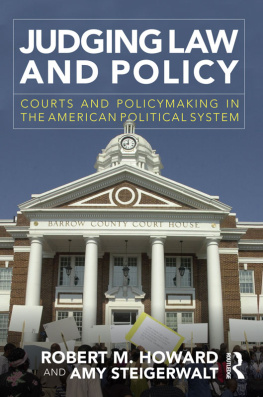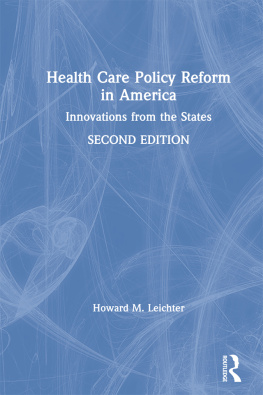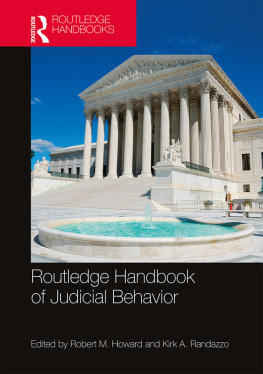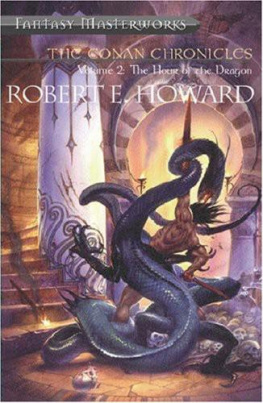Howard Robert M. - Judging Law and Policy
Here you can read online Howard Robert M. - Judging Law and Policy full text of the book (entire story) in english for free. Download pdf and epub, get meaning, cover and reviews about this ebook. publisher: Taylor & Francis Group, genre: Politics. Description of the work, (preface) as well as reviews are available. Best literature library LitArk.com created for fans of good reading and offers a wide selection of genres:
Romance novel
Science fiction
Adventure
Detective
Science
History
Home and family
Prose
Art
Politics
Computer
Non-fiction
Religion
Business
Children
Humor
Choose a favorite category and find really read worthwhile books. Enjoy immersion in the world of imagination, feel the emotions of the characters or learn something new for yourself, make an fascinating discovery.
- Book:Judging Law and Policy
- Author:
- Publisher:Taylor & Francis Group
- Genre:
- Rating:4 / 5
- Favourites:Add to favourites
- Your mark:
- 80
- 1
- 2
- 3
- 4
- 5
Judging Law and Policy: summary, description and annotation
We offer to read an annotation, description, summary or preface (depends on what the author of the book "Judging Law and Policy" wrote himself). If you haven't found the necessary information about the book — write in the comments, we will try to find it.
Judging Law and Policy — read online for free the complete book (whole text) full work
Below is the text of the book, divided by pages. System saving the place of the last page read, allows you to conveniently read the book "Judging Law and Policy" online for free, without having to search again every time where you left off. Put a bookmark, and you can go to the page where you finished reading at any time.
Font size:
Interval:
Bookmark:
JUDGING LAW AND POLICY
To what extent do courts make social and public policy and influence policy change? This innovative text analyzes this question generally and in seven distinct policy areas that play out in both federal and state courtstax policy, environmental policy, reproductive rights, sex equality, affirmative action, school finance and same-sex marriage. The authors address these issues through the twin lenses of how state and federal courts must and do interact with the other branches of government and whether judicial policymaking is a form of activist judging.
Each chapter uncovers the policymaking aspects of judicial process by investigating the current state of the law, the extent of court involvement in policy change, the responses of other governmental entities and outside actors, and the factors which influenced the degree of implementation and impact of the relevant court decisions. Throughout the book, Howard and Steigerwalt examine and analyze the literature on judicial policymaking as well as evaluate existing measures of judicial ideology, judicial activism, court and legal policy formation, policy change and policy impact. This unique text offers new insights and areas to research in this important field of American politics.
Robert M. Howard is Professor of Political Science at Georgia State University and editor of Justice System Journal.
Amy Steigerwalt is Assistant Professor of Political Science at Georgia State University.
JUDGING LAW
AND POLICY
Courts and Policymaking in the
American Political System
Robert M. Howard
Professor of Political Science
Georgia State University
Amy Steigerwalt
Assistant Professor of Political Science
Georgia State University

First published 2012
by Routledge
711 Third Avenue, New York, NY 10017
Simultaneously published in the UK
by Routledge
2 Park Square, Milton Park, Abingdon, Oxon OX14 4RN
Routledge is an imprint of the Taylor & Francis Group, an informa business
2012 Taylor & Francis
The right of Robert M. Howard and Amy Steigerwalt to be identified as authors of this work has been asserted by them in accordance with sections 77 and 78 of the Copyright, Designs and Patents Act 1988.
All rights reserved. No part of this book may be reprinted or reproduced or utilised in any form or by any electronic, mechanical, or other means, now known or hereafter invented, including photocopying and recording, or in any information storage or retrieval system, without permission in writing from the publishers.
Trademark Notice: Product or corporate names may be trademarks or registered trademarks, and are used only for identification and explanation without intent to infringe.
Library of Congress Cataloging in Publication Data
Howard, Robert M., 1956
Judging law and policy : courts and policymaking in the American political system / Robert M. Howard, Amy Steigerwalt.
p. cm.
1. Political questions and judicial powerUnited States. I. Steigerwalt, Amy, 1976 II. Title.
KF5130.H69 2011
347.731dc22
2011009564
ISBN13: 978-0-415-88524-9 (hbk)
ISBN 13: 978-0-415-88525-6 (pbk)
ISBN13: 978-0-203-83986-7 (ebk)
Robert M. Howard dedicates this book to the loving memory of his grandparents, William and Anna Horowitz and Ivan and Rachel Skura
Amy Steigerwalt dedicates this book to her grandparents, Nathan and Gladys Steigerwalt, and in loving memory of her grandparents, Irving and Rose Wainstein
List of Figures and Tables
Figures
Tables
Acknowledgments
The genesis of this book arose from an initial meeting with Mike Kerns to review books that would work in undergraduate and graduate classes in judicial politics and process; in particular Mike asked us what book would give a complete overview of courts, law and policy. As we discussed the various options, we came to realize that, although there were several books discussing judicial process and courts and policy, there was no book that specifically focused on the impact and influence of courts and the law on the dominant, controversial and important social and public policy issues of the day. There were many wonderful books on judicial politics and process with chapters or sections discussing courts and policymaking, but no specific volume on why courts make and change policy.
Hence this book on judges and judging that we sincerely believe makes a contribution both to undergraduate and graduate learning and to the literature on the nature of judging and how and why courts can and should impact public and social policy in the United States. We think the book will aid a students understanding of courts and policymaking. At the same time, the book has a point of view. The book enters the debate on the efficacy of courts and their ability to move social and public policyan action we firmly believe they regularly perform. However, we do accept that there are limits to this ability. The reader is free to argue with our evidence and conclusions throughout the book.
We would like to thank our research assistants, Shenita Brazelton, Clarissa Dias, Jessica Burke and Devian Harris for their assistance in gathering data. We would not have been able to complete this book without their invaluable aid. We would also like to thank Taryn Howard, our personal Excel guru. She could truly make a second career showing academics how to use and manipulate data and charts. All the charts and figures in the book are the result of her aid and expertise. Any errors or problems with them are, of course, our own.
We also thank our contacts at Routledge, Mike Kerns and Mary Altman. We thank Mike for his encouragement from the inception of the idea for the project through its completion. He assisted us in formulating the outline, the major ideas, theories and chapters. He did such a good job that the final proposed outline of chapters, subsections, tables, and figures and the completed project are astonishingly similar. That is truly a remarkable achievement. We thank Mary for her so gentle prodding that at times we did not even realize that we were getting a slight kick to encourage us to finish. But, her methods were wonderfully effective.
We finally thank Harold J. Spaeth, who has throughout the years been a supporter and mentor to us both. He has consistently given us encouragement and advice on matters both small and large, and we thank him for being willing to share his time, expertise and wisdom with us. Without Harolds encouragement to Amy to apply to the open Georgia State position we would not have had the opportunity to collaborate on this project and have such an enjoyable and collegial working relationship.
Bob Howard would like to thank his family for their love and support. To my wonderful children, Courtney and Jordanyou have both grown up to be as wonderful adults as I could have ever wished for all those years watching you both mature and develop. I also want to thank Dave Hodapp who has made me realize that the statement, you arent losing a daughter you are gaining a son is actually true. To my parents, Amy and Bernie Howard, and my father-in-law Hans Merz, I thank you for all the years of love and support. Finally, to Tarynsomehow thank you is a very inadequate term for the more than thirty years of love and listening to my almost constant kvetching.
Amy Steigerwalt would like to thank her family as well. To my parents, Arnold and Ronna Steigerwalt, and my mother-in-law, Maureen Butler Smith, thank you for all of your support, love and guidance through the years. I can only hope that I am as great a parent to your soon-to-be-arriving grandson as you all have been to me. And, to Greg, who lovingly and willingly put up with a spouse facing an advancing pregnancy and a pressing book deadline, and did so with love, generosity and many, many biscuitsthank you, from the bottom of my heart.
Next pageFont size:
Interval:
Bookmark:
Similar books «Judging Law and Policy»
Look at similar books to Judging Law and Policy. We have selected literature similar in name and meaning in the hope of providing readers with more options to find new, interesting, not yet read works.
Discussion, reviews of the book Judging Law and Policy and just readers' own opinions. Leave your comments, write what you think about the work, its meaning or the main characters. Specify what exactly you liked and what you didn't like, and why you think so.










